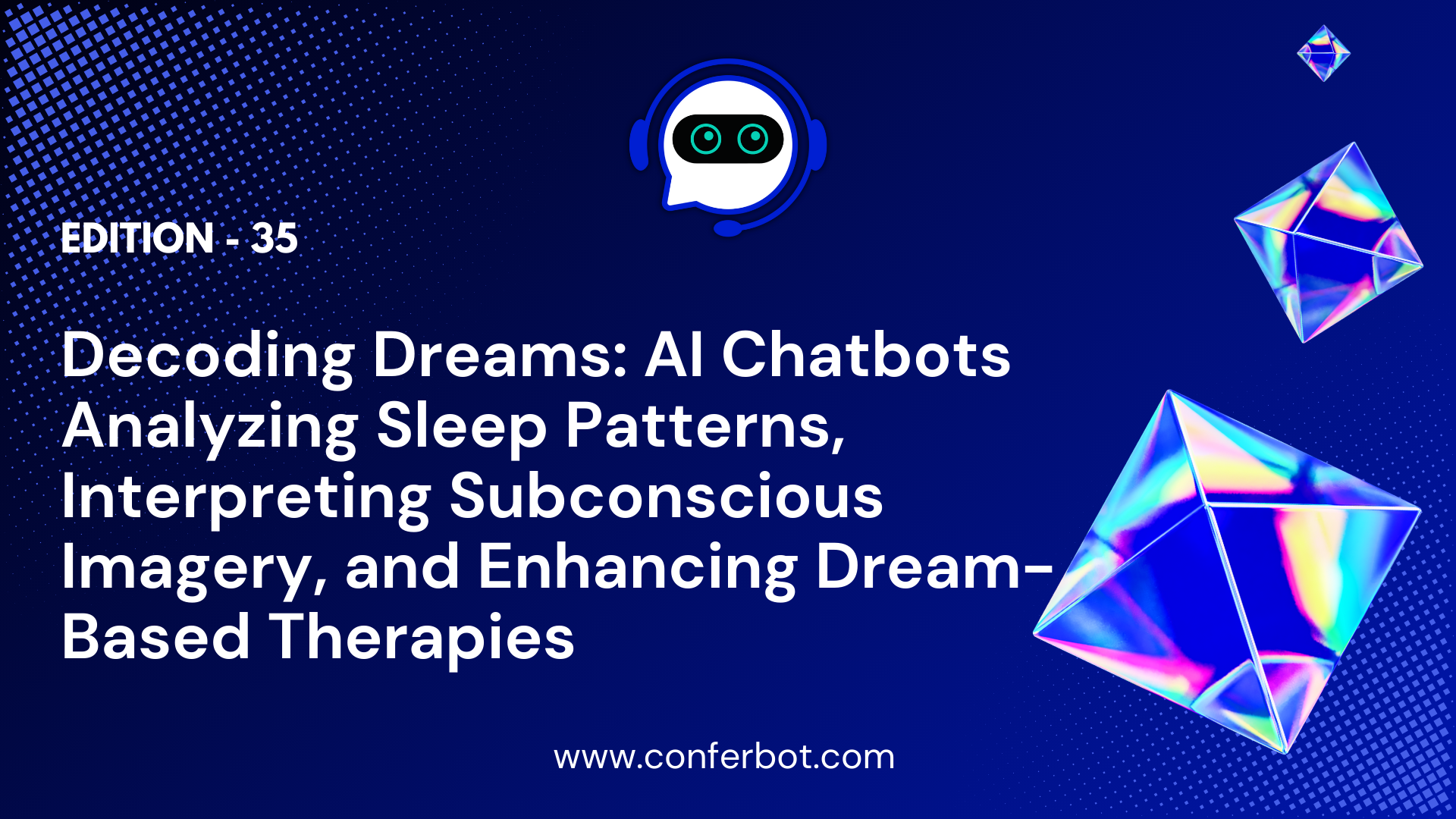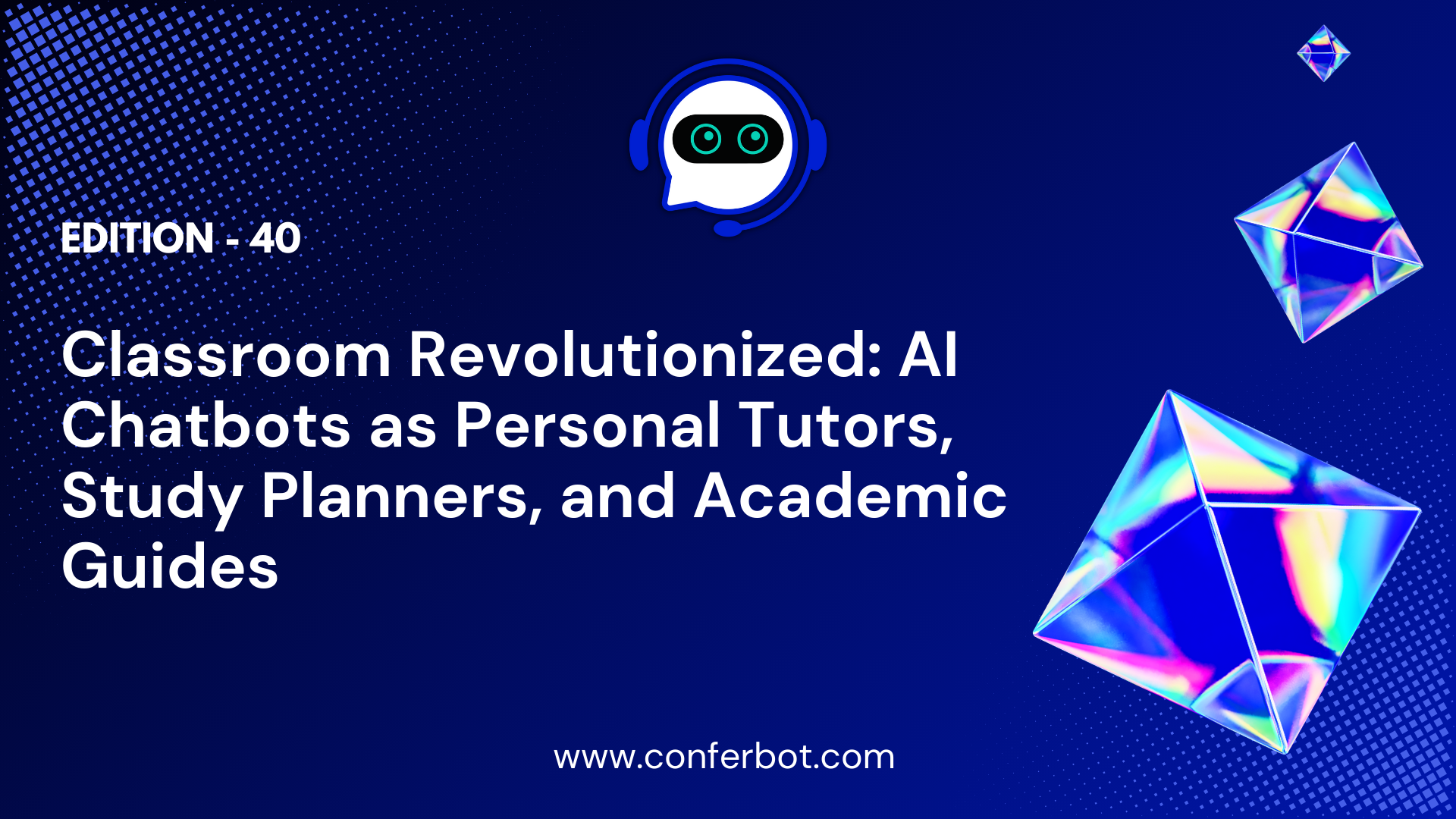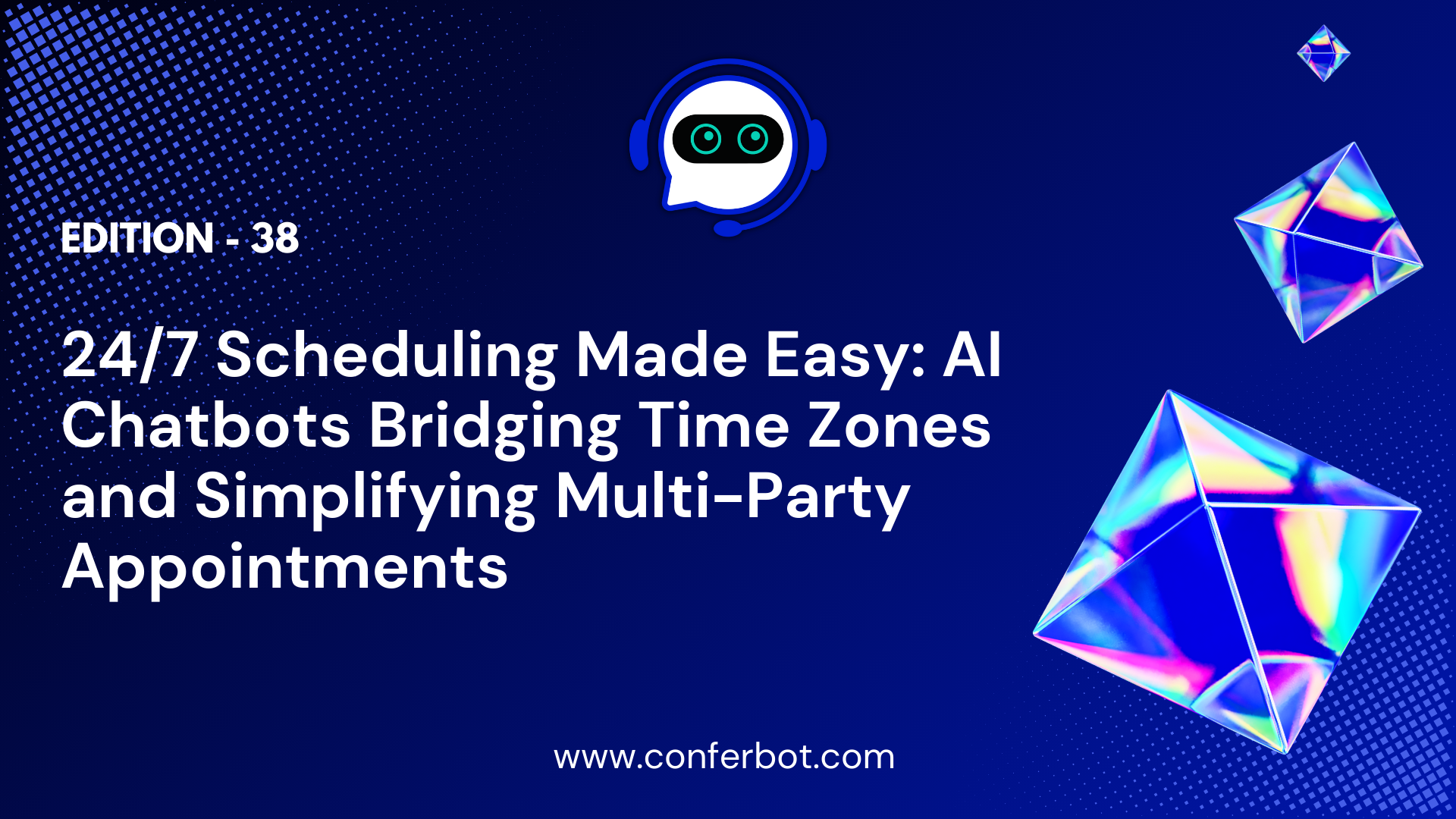
Decoding Dreams: AI Chatbots Analyzing Sleep Patterns, Interpreting Subconscious Imagery, and Enhancing Dream-Based Therapies
Explore how AI chatbots are revolutionizing sleep pattern analysis, dream interpretation, and dream-based therapies. Discover the future of subconscious exploration in our latest Insights on Chatbots & AI edition.

Awakening to AI: An Introduction
Welcome to the thirty-fifth edition of Insights on Chatbots & AI, where we venture into the mysterious realm of dreams, sleep, and the subconscious mind. This issue explores how AI chatbots are revolutionizing our understanding of sleep patterns, deciphering the enigmatic language of dreams, and opening new frontiers in dream-based therapies. Join us as we unravel the tapestry of our nocturnal journeys, guided by the digital dream weavers of artificial intelligence.
The Digital Sandman: AI Chatbots and Sleep Pattern Analysis
In the quiet hours of the night, when consciousness fades and dreams take flight, AI chatbots are becoming silent sentinels, monitoring and analyzing our sleep patterns with unprecedented precision.
Advanced AI systems, integrated with wearable devices and smart home technology, are now capable of tracking a myriad of sleep-related data points. From heart rate variability and breathing patterns to body temperature and movement, these digital insomniacs are painting a detailed picture of our nightly sojourns.
But the role of AI chatbots in sleep analysis goes far beyond mere data collection. These systems are employing sophisticated algorithms to identify sleep stages, detect disruptions, and even predict sleep quality based on daytime activities and environmental factors. This level of analysis is providing invaluable insights into the intricate relationship between our waking lives and the quality of our sleep. One of the most exciting developments in this field is the ability of AI chatbots to provide personalized sleep recommendations. By analyzing individual sleep patterns and correlating them with lifestyle factors, these digital sleep coaches can offer tailored advice on everything from optimal bedtime routines to ideal sleep environments. Moreover, AI chatbots are proving particularly valuable in the diagnosis and management of sleep disorders. By detecting subtle patterns and anomalies that might escape human observation, these systems are helping to identify conditions like sleep apnea, insomnia, and narcolepsy at early stages, facilitating timely intervention and treatment. The integration of AI chatbots with smart home systems is opening new possibilities for sleep optimization. Imagine a bedroom that automatically adjusts lighting, temperature, and ambient noise based on your personal sleep patterns and preferences, all orchestrated by an AI sleep assistant that learns and adapts to your needs over time. However, this deep dive into our sleep patterns also raises important privacy concerns. The intimate nature of sleep data requires robust security measures and clear guidelines on data usage. Ensuring that individuals retain control over their sleep information and how it's used is paramount as this technology evolves. As we drift into the realm of dreams, AI chatbots are emerging as modern-day oneiromancers, decoding the cryptic messages of our subconscious minds with a blend of data analysis and psychological insight. By leveraging natural language processing and image recognition technologies, AI systems are now capable of analyzing dream narratives and visual descriptions with remarkable depth. These digital dream interpreters can identify recurring themes, symbols, and emotional patterns across multiple dream reports, offering insights that might elude traditional dream analysis methods. One of the most intriguing applications of AI in dream analysis is the ability to cross-reference individual dreams with vast databases of cultural symbolism, psychological archetypes, and personal experiences. This allows for a multi-layered interpretation that considers both universal themes and individual contexts, providing a richer understanding of dream content. AI chatbots are also being employed to track long-term patterns in dream content, offering a unique window into the dreamer's psychological state over time. By identifying shifts in dream themes or emotional tones, these systems can potentially flag changes in mental health or personal development that might otherwise go unnoticed. The potential for AI to generate visual representations of described dreams is another exciting frontier. By translating verbal descriptions into images or even virtual reality experiences, AI systems are allowing dreamers to revisit and explore their nocturnal visions in new and immersive ways. However, the interpretation of dreams remains a deeply personal and subjective experience. The challenge lies in balancing the analytical power of AI with the intuitive and emotional aspects of dream interpretation. Ensuring that AI dream analysis enhances rather than replaces human insight and self-reflection is crucial. Moreover, the ethical implications of AI accessing and interpreting such intimate mental content must be carefully considered. Safeguarding the privacy of dream data and ensuring that dreamers retain autonomy over their subconscious expressions is paramount. The therapeutic potential of dreams has long been recognized in various psychological traditions. Now, AI chatbots are stepping into the role of dream therapists, enhancing and expanding the possibilities of dream-based interventions. AI-assisted lucid dreaming is one of the most exciting developments in this field. By monitoring sleep patterns and brain activity, AI systems can identify optimal moments to trigger lucidity, allowing dreamers to consciously engage with and potentially reshape their dream experiences. This has profound implications for addressing nightmares, practicing skills, or exploring creative ideas within the dream state. In the realm of nightmare therapy, AI chatbots are proving to be valuable allies. These systems can help individuals rewrite recurring nightmares, offering alternative narrative suggestions and guiding dreamers through techniques to transform distressing dream content. The ability of AI to learn from successful interventions and adapt strategies over time makes it a powerful tool in addressing chronic nightmare disorders. AI chatbots are also being employed in dream incubation techniques, where specific themes or problems are intentionally introduced into the dream state for problem-solving or creative inspiration. By analyzing waking concerns and tailoring pre-sleep suggestions, these digital muses can help guide the dreaming mind towards productive and insightful nocturnal explorations. The potential for AI to facilitate group dream work is another intriguing avenue. By analyzing shared dream themes across communities or cultures, AI systems can identify collective concerns or archetypal patterns, potentially offering insights into societal issues or shared human experiences. However, the use of AI in dream-based therapies also raises important ethical considerations. The deeply personal nature of dreams and their potential connection to trauma or mental health issues requires a delicate approach. Ensuring that AI interventions are always under the supervision of qualified mental health professionals and that the primacy of human therapeutic relationships is maintained is crucial. Moreover, the risk of over-reliance on AI interpretations in therapeutic contexts must be carefully managed. While AI can offer valuable insights, the subjective and deeply personal nature of dream experiences means that human intuition and clinical expertise must remain central to dream-based therapies. As we venture deeper into the AI-assisted exploration of sleep and dreams, we must navigate a complex ethical landscape that touches on some of our most intimate and vulnerable states of being. Privacy concerns are paramount when dealing with sleep and dream data. The information gathered during our most vulnerable hours – our sleep patterns, dream content, and subconscious expressions – is deeply personal and potentially sensitive. Robust data protection measures, clear consent protocols, and stringent guidelines on data usage and sharing are essential to maintain trust and protect individual privacy. The potential for AI to influence or manipulate dream content, especially in therapeutic contexts, raises significant ethical questions. While the ability to reshape nightmares or guide dreams towards positive outcomes has therapeutic potential, it also carries the risk of unintended psychological consequences. Establishing clear boundaries and ethical guidelines for AI intervention in the dream state is crucial. The interpretation of dreams by AI systems also raises questions about the nature of consciousness and the value of human intuition. While AI can offer data-driven insights, dreams often carry deeply personal and culturally specific meanings that may not be fully captured by algorithmic analysis. Balancing AI-generated interpretations with human insight and personal reflection is essential to maintain the richness and depth of dream exploration. Moreover, the use of AI in sleep and dream analysis could potentially exacerbate existing health disparities. Ensuring equitable access to these technologies and preventing the creation of a "sleep divide" where only certain segments of society benefit from AI-enhanced sleep and dream interventions is an important ethical consideration. In the ethereal realm of sleep and dreams, Conferbot emerges as a beacon of innovation and ethical responsibility. Their cutting-edge AI solutions are designed to enhance our understanding of sleep patterns and dream content while maintaining the highest standards of privacy and personal autonomy. Conferbot's flagship offering, "DreamScape AI," is a comprehensive platform that integrates sleep tracking, dream analysis, and therapeutic interventions. Built on a foundation of ethical AI principles, DreamScape AI ensures that the exploration of our nocturnal experiences remains secure, insightful, and deeply respectful of individual privacy. Key features of Conferbot's DreamScape AI include: 1. Advanced sleep pattern analysis with personalized optimization recommendations 2. Multi-layered dream interpretation combining cultural, psychological, and personal contexts 3. AI-assisted lucid dreaming and nightmare transformation tools 4. Secure data encryption and user-controlled sharing options 5. Integration with mental health support systems for holistic well-being What sets Conferbot apart is their commitment to maintaining the delicate balance between technological innovation and the deeply personal nature of sleep and dreams. Their "Conscious AI" initiative ensures that all AI interventions in the dream state are transparent, user-controlled, and aligned with individual well-being goals. Conferbot is also pioneering in the development of culturally adaptive dream interpretation models. Recognizing the diverse cultural contexts of dream symbolism, their systems are designed to provide interpretations that are sensitive to individual cultural backgrounds and personal belief systems. Moreover, Conferbot is at the forefront of research into the ethical implications of AI in sleep and dream analysis. Their collaborations with sleep scientists, psychologists, and bioethicists are helping to establish industry standards for responsible AI use in this intimate domain of human experience. As we conclude this edition of Insights on Chatbots & AI, we find ourselves on the cusp of a new era in our understanding of sleep and dreams. The silent realms of our nocturnal journeys are being illuminated by the soft glow of artificial intelligence, offering unprecedented insights into the mysteries of our subconscious minds. The emergence of AI chatbots capable of analyzing sleep patterns, interpreting dreams, and enhancing dream-based therapies presents both exciting opportunities and profound challenges. These advances promise to deepen our understanding of sleep's role in health and well-being, unlock the potential of our dream lives for personal growth and creativity, and offer new avenues for addressing sleep-related disorders and mental health issues. However, as we venture into these most intimate aspects of human experience, we must proceed with reverence and ethical mindfulness. The power to peer into the subconscious and potentially influence our dream lives carries great responsibility. We must ensure that these technologies are developed and used in ways that respect individual privacy, cultural diversity, and the mysterious, often ineffable nature of dreams. As we look to the future, the potential for AI in sleep and dream research is boundless. We may be moving towards a world where our nights are as productive and insightful as our days, where the wisdom of our dreams is more accessible than ever before, and where sleep becomes a powerful tool for enhancing our waking lives. Yet, in this brave new world of digital dream weavers, we must not lose sight of the deeply personal, often spiritual nature of our dream experiences. The future of AI in sleep and dream analysis lies not in replacing human intuition and self-reflection, but in enhancing our ability to remember, understand, and integrate the nightly journeys of our subconscious minds. At Conferbot, we remain committed to developing AI technologies that illuminate the dark corners of our sleep and dreams while respecting the sanctity of these most vulnerable states. By continuing to innovate responsibly, engage in ethical reflection, and prioritize human well-being, we can create a future where AI serves as a gentle guide through the labyrinth of our nocturnal experiences, helping us to awaken more fully to the richness of our inner lives. As we embrace this new chapter in the story of human consciousness, let us approach it with open minds, compassionate hearts, and a deep respect for the mystery of dreams. The insights that AI is beginning to glean from our slumbers may reshape our understanding of the mind and consciousness, but it is our human capacity for wonder, introspection, and meaning-making that will guide us through this dream revolution, ensuring that in our quest for understanding, we don't lose touch with the ineffable magic of our nocturnal journeys.Dream Whisperers: AI in Dream Interpretation and Analysis
Dreamscape Therapists: AI Chatbots in Dream-Based Therapies
Ethical Considerations: Navigating the Dreamscape
Spotlight on Conferbot: Pioneering Ethical AI for Sleep and Dream Analysis
Awakening to a New Dawn: Concluding Thoughts

The Conferbot Team
About AuthorHi there! I'm Conferbot, a simple and powerful tool that enables you to create chatbots for your website in minutes.
Try me out and see how I can help make your work life easier, just like I have for 10k+ satisfied users worldwide.


